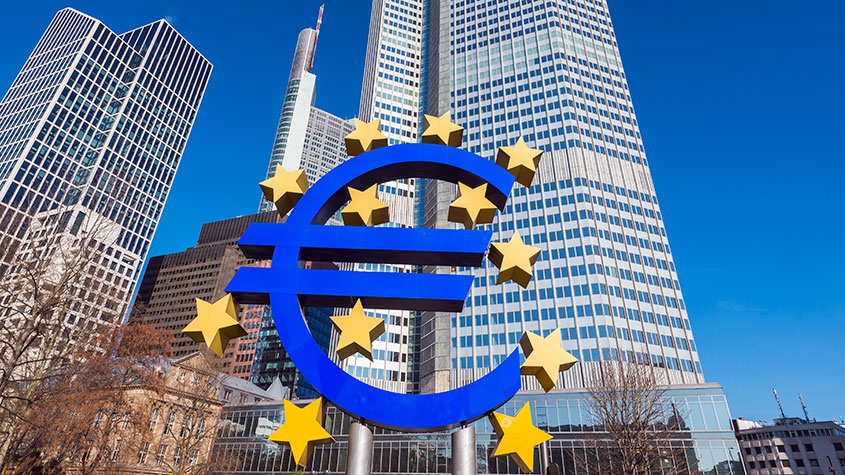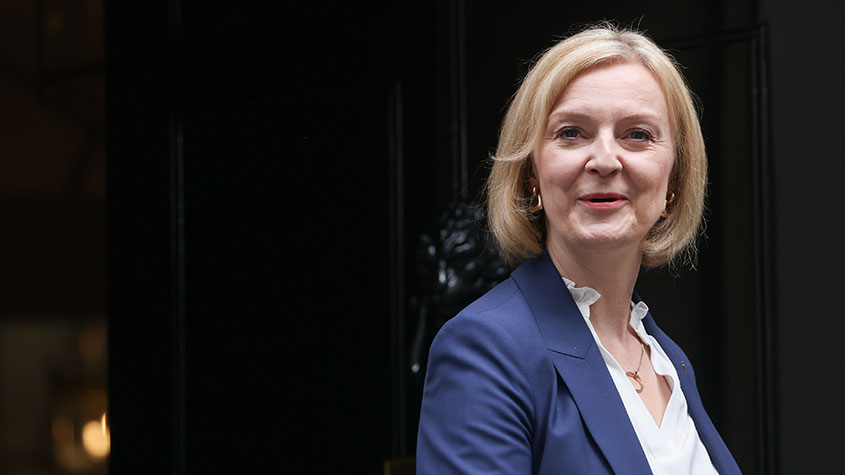“Plan A” dons a false moustache
Theresa May’s deal is back on the table. Will it be more appetising the second time? Emily Hohler reports.

Get the latest financial news, insights and expert analysis from our award-winning MoneyWeek team, to help you understand what really matters when it comes to your finances.
You are now subscribed
Your newsletter sign-up was successful
Want to add more newsletters?

Twice daily
MoneyWeek
Get the latest financial news, insights and expert analysis from our award-winning MoneyWeek team, to help you understand what really matters when it comes to your finances.

Four times a week
Look After My Bills
Sign up to our free money-saving newsletter, filled with the latest news and expert advice to help you find the best tips and deals for managing your bills. Start saving today!

A week after she suffered the "biggest parliamentary defeat of modern times" and for all her "fine words about cross-party engagement", Prime Minister Theresa May is still "refusing to budge" over her Brexit withdrawal bill, says Michael Deacon in The Daily Telegraph. Her "tantalisingly billed" Plan B turned out to be "Plan A in a false moustache".
In her statement to the Commons on Monday she insisted the centrepiece of her strategy is negotiating changes to the Irish backstop. She also reiterated that a second referendum could undermine "faith in our democracy" and refused to rule out a no-deal Brexit, "claiming the only way to do so was to accept her deal or revoke Article 50 altogether", say Heather Stewart and Jennifer Elgot in The Guardian.
Drop the backstop
The Northern Ireland backstop is the critical issue, says Boris Johnson in The Daily Telegraph, but there is nothing our MPs can do to "change that text" in the withdrawal deal. That is why May must now return to Brussels "with a real take-it-or-leave-it determination" and get them to take the backstop out, or at the "very least give us a legally binding change that allows for the UK to come out of its own accord".
MoneyWeek
Subscribe to MoneyWeek today and get your first six magazine issues absolutely FREE

Sign up to Money Morning
Don't miss the latest investment and personal finances news, market analysis, plus money-saving tips with our free twice-daily newsletter
Don't miss the latest investment and personal finances news, market analysis, plus money-saving tips with our free twice-daily newsletter
Then we will be able to say that the agreement, while "imperfect", is "at least tolerable". It will also "unite her party; and the national feeling of relief will be astounding". There are large numbers of MPs who want to stop Brexit, and are hatching "absurd plots" endless "amendments, feints, ruses, motions" to do so. But they won't stop Brexit, and by "seeming so blatantly to go against the wishes of the electorate" they will merely contribute to the sense of a growing divide between the public and the political elite.
So what are May's chances of securing concessions, ask Karla Adam and William Booth in The Washington Post. Germany's chancellor, Angela Merkel, shifted some of the onus back on the EU, saying "we have a responsibility to shape a divorce process" so people don't ask us why we didn't compromise 50 years from now.
The Polish foreign minister, Jacek Czaputowicz, suggested limiting the Irish backstop to five years. Jean-Claude Juncker's chief spokesman responded by saying the withdrawal deal was "not open to negotiation" and told reporters it was "pretty obvious" that border infrastructure (ie, a hard border) would be needed if the UK were to leave the EU without a deal remarks the Democratic Unionist Party's Brexit spokesman, MP Sammy Wilson, described as "belligerent bluffing", says Daniel Boffey in The Guardian.
If a five-year limit to the backstop found favour with other member states, that "could well do the trick", as would a "unilateral withdrawal mechanism for the UK", says Sebastian Payne in the Financial Times. For now, both Ireland and the EU are standing firm, but resolve will be tested "the closer we move towards the prospect of a crash Brexit".
Even if May does secure changes to the backstop, the objections of many Tory MPs go "way beyond" this "narrow issue", says Rachel Sylvester in The Times. True, but some of the "most boisterous Brexiters", including Jacob Rees-Moggand Nadine Dorries, have changed their tone in recent days, realising they
"risk allowing perfect to become the enemy of the good", says Payne. May's Brexit is "far from" the "buccaneering vision of taking back control'", but "opposing it could result in no Brexit at all". Perhaps they will stand firm and Parliament will "take control and direct what happens next", but "an orderly Brexit" is in the interests of all the key players. May's deal "may not be quite dead".
Second-vote juggernaut is unstoppable
To avoid a "catastrophic crash-out" from the EU on 29 March, MPs have begun "wresting control of the process from the government", says the Financial Times. This is a "justifiable effort to forge consensus" in the absence of a working government majority. MPs should "legislate against a no-deal outcome" and seek to extend Article 50. They should then hold "indicative votes to test support for other options". However, if none can win a majority and Theresa May's deal "remains deadlocked", then a second referendum seems the only option, it says.
Voters don't seem "very keen for MPs to pass them the buck", says John Curtice inThe Daily Telegraph. Popular support for a second vote is not as great as the People's Vote campaigners suggest. According to polls, aroundtwo-thirds of Remainerswould like one, but only one in eight Leavers would.
A second referendum would be the "most bitter and divisive event in modern history" and would probably be a tight contest, says William Hague in the same paper. But, by a process of elimination, it is coming. "The deal as it stands cannot be passed", an improved deal is "a long shot", a hard exit "can be killed off", calling a general election is
too risky and cross-party agreement on a new plan looks improbable as Jeremy Corbyn (who has endorsed a plan for MPs to vote on whether a second referendum should be held, notes The Independent) won't even talk to Theresa May. It must also be remembered Brexit is not a single event. Any plan needs "a majority to sustain both it and the government" over many months winning votes and passing laws.
A second vote will be a tragedy, "because as the world economy slows down, the West fragments, and new great scientific and ecological challenges arise, we will have another year of arguing with ourselves. But it's not hard, after the events of the last week, to see it coming".
Get the latest financial news, insights and expert analysis from our award-winning MoneyWeek team, to help you understand what really matters when it comes to your finances.

Emily has worked as a journalist for more than thirty years and was formerly Assistant Editor of MoneyWeek, which she helped launch in 2000. Prior to this, she was Deputy Features Editor of The Times and a Commissioning Editor for The Independent on Sunday and The Daily Telegraph. She has written for most of the national newspapers including The Times, the Daily and Sunday Telegraph, The Evening Standard and The Daily Mail, She interviewed celebrities weekly for The Sunday Telegraph and wrote a regular column for The Evening Standard. As Political Editor of MoneyWeek, Emily has covered subjects from Brexit to the Gaza war.
Aside from her writing, Emily trained as Nutritional Therapist following her son's diagnosis with Type 1 diabetes in 2011 and now works as a practitioner for Nature Doc, offering one-to-one consultations and running workshops in Oxfordshire.
-
 Should you buy an active ETF?
Should you buy an active ETF?ETFs are often mischaracterised as passive products, but they can be a convenient way to add active management to your portfolio
-
 Power up your pension before 5 April – easy ways to save before the tax year end
Power up your pension before 5 April – easy ways to save before the tax year endWith the end of the tax year looming, pension savers currently have a window to review and maximise what’s going into their retirement funds – we look at how
-
 No peace dividend in Trump's Ukraine plan
No peace dividend in Trump's Ukraine planOpinion An end to fighting in Ukraine will hurt defence shares in the short term, but the boom is likely to continue given US isolationism, says Matthew Lynn
-
 Europe’s new single stock market is no panacea
Europe’s new single stock market is no panaceaOpinion It is hard to see how a single European stock exchange will fix anything. Friedrich Merz is trying his hand at a failed strategy, says Matthew Lynn
-
 Britain’s inflation problem
Britain’s inflation problemInflation in the UK appears to be remaining higher for longer when compared with similar rich countries. Why? And when can we expect a return to normal? Simon Wilson reports.
-
 Eurozone inflation hits 10.7% in October
Eurozone inflation hits 10.7% in OctoberNews Inflation across the eurozone hit 10.7% in October. What does it mean for your money?
-
 A forgotten lesson on the dangers of energy price caps
A forgotten lesson on the dangers of energy price capsAnalysis Liz Truss’s proposed energy price cap is an ambitious gamble. But a similar programme in Spain ended up being a fiasco, say Max King and Tom Murley. Here, they explain why Truss’s plan could be doomed to failure.
-
 Don't be scared by economic forecasting
Don't be scared by economic forecastingEditor's letter The Bank of England warned last week the UK will tip into recession this year. But predictions about stockmarkets, earnings or macroeconomic trends can be safely ignored, says Andrew Van Sickle.
-
 The wolf returns to the eurozone’s door
The wolf returns to the eurozone’s doorEditor's letter The eurozone’s intrinsic flaws have been exposed again as investors’ fears about Italy’s ability to pay its debt sends bond yields soaring.
-
 Eurozone economy heads for paralysis
Eurozone economy heads for paralysisNews Record high energy prices, the threat of recession in Germany and squabbling in Italy's government has left the eurozone fighting fires on all fronts.